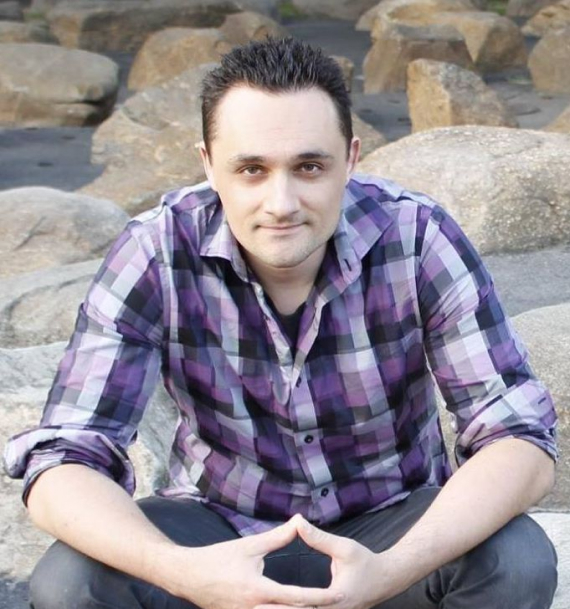Professor

Professor Voronov’s Bio
Roman S. Voronov is an Assistant Professor at the New Jersey Institute of Technology. While at NJIT he has taught both graduate and undergraduate courses: Transport Phenomena (ChE624), Heat and Mass Transfer (ChE370), and Techniques for Process Simulation (Che365). In addition to this, he has trained ~30 undergraduates (many of whom have won awards in supercomputing, electrical engineering and entrepreneurship) in research and has published an education journal article about the state of the Chemical Engineering Curriculum.
Prof. Voronov’s long-term vision is to develop computer-driven manufacturing of artificial tissues. He began this endeavor in hi PhD, during which he worked between tissue engineers, polymer scientists, X-ray technicians and supercomputer programmers, in order to model the transport microenvironment experienced by the cells in scaffolds during culturing. However, he quickly realized that simulating the physics alone was limited, and cell behavior was needed for a true tissue growth model. Hence, he continued developing image processing algorithms that could detect the cells within the scaffold scans. He did this work during his “spare time”, while in a blood systems biology postdoctoral appointment. Eventually, Prof. Voronov got NJIT to invest into his experimental ambitions and changed careers, from pure computation to adding experiments. During his first year at NJIT, he had secured a $400k grant from a private foundation ($100k of which was allocated exclusively to undergraduate research). He then built a tissue engineering laboratory, and a microfluidics foundry, in order to study single cell behavior. For the latter, Prof. Voronov had to build a custom mask aligner, and he later received a NSF I-Corps seed grant to commercialize it. Additionally, Prof. Voronov built a Lattice Light Sheet Microscope – one of the most advanced and complicated microscopes in the world; because he knew that the other imaging methods would not work for this application. Finally, Prof. Voronov has maintained his hematology direction, for which he received a 35k foundation grant as well. His latest work utilizes automation of microfluidic and microscopy technologies, in order to achieve single cell control over the growing tissue in artificial scaffolds (a provisional patent has been issued). Ultimately, Prof. Voronov aspires to make these technologies – a mainstream therapy for everyone, by establishing his own startup company.
Prior to his appointment at NJIT, Prof. Voronov was a AHA Postdoctoral Fellow in the Department of Chemical & Biomolecular Engineering at the University of Pennsylvania under the guidance of Prof. Scott Diamond. His research interests encompass high performance image-based modeling of complex flows with applications ranging from bone tissue engineering, to blood systems biology, to drug delivery. Prior to joining UPenn, Dr. Voronov held a brief post-doctoral appointment at the University of Oklahoma (OU) studying enhanced oil recovery from porous rock formations (Advanced Energy Consortium). He received his PhD in 2010, MS in 2006, and BS (Summa Cum Laude with a Minor in Physics) in 2003 in Chemical Engineering from OU. His dissertation research involved optimization of culturing conditions for artificial bone tissue using computational fluid dynamics (NSF), and his thesis concentrated on relating slip phenomena to contact angle on superhydrophobic surfaces via molecular dynamics (ONR-NAVY).
Throughout his career Dr. Voronov has held several leadership posts at OU, including, Graduate Senator (Peer-elected position, ’05-‘06) and Chemical Engineering Graduate Society Officer. Among the awards received by Dr. Voronov are the NSF Engineering in Practice teaching fellowship, the LBNL-DOE 2009 Advanced CompuTational Software Collection Workshop Fellowship, and the OU Outstanding Graduate Teaching Assistant Award – (Campus-wide, Spring ’06).
